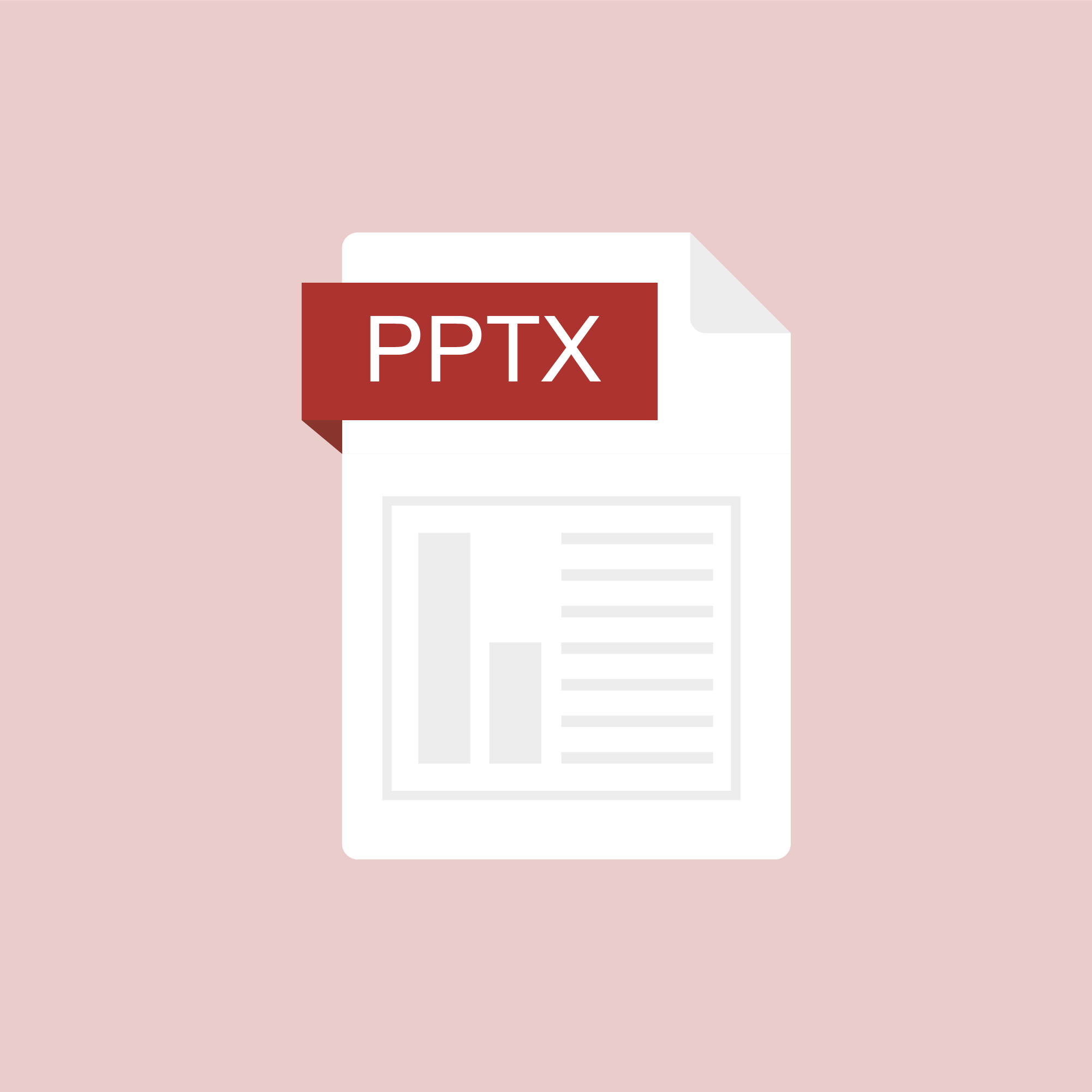We found 299 results that contain "super admin"
Posted on: #iteachmsu

ASSESSING LEARNING
Eating a wide variety of nutritious foods, including fruit, vegetables, nuts, seeds, and lean protei
Eating a wide variety of nutritious foods, including fruit, vegetables, nuts, seeds, and lean protein can help support your overall health.
Many foods are both healthy and tasty. By filling your plate with fruits, vegetables, quality protein sources, and other whole foods, you’ll have meals that are colorful, versatile, and good for you.
Here are 50 healthy and delicious to include in your diet.
Col 1
Col 2
Col 3
Row 1
Row 2
Row 3
Many foods are both healthy and tasty. By filling your plate with fruits, vegetables, quality protein sources, and other whole foods, you’ll have meals that are colorful, versatile, and good for you.
Here are 50 healthy and delicious to include in your diet.
Col 1
Col 2
Col 3
Row 1
Row 2
Row 3
Authored by:
Vijaya

Posted on: #iteachmsu


Eating a wide variety of nutritious foods, including fruit, vegetables, nuts, seeds, and lean protei
Eating a wide variety of nutritious foods, including fruit, vegetab...
Authored by:
ASSESSING LEARNING
Friday, Nov 24, 2023
Posted on: #iteachmsu

NAVIGATING CONTEXT
Using the S3 console
Using the S3 console
You can use the S3 console, AWS CLI, AWS SDKs, and REST API to configure block public access settings for your bucket. For more information, see the sections below.
You can use the S3 console, AWS CLI, AWS SDKs, and REST API to configure block public access settings for your bucket. For more information, see the sections below.
Authored by:
AWS

Posted on: #iteachmsu


Using the S3 console
Using the S3 console
You can use the S3 console, AWS CLI, AWS SDKs,...
You can use the S3 console, AWS CLI, AWS SDKs,...
Authored by:
NAVIGATING CONTEXT
Tuesday, Mar 7, 2023
Posted on: #iteachmsu

ADHD student education
ADHD student education
The student may exhibit symptoms that include behaviors from both categories above.
In order for a student to be diagnosed with ADHD, symptoms must appear before age 12 and be exhibited across at least two settings. They must also have adverse effects on academic performance, occupational success, or social-emotional development (APA, 2013).
To add to the complexity of the diagnosis, children with ADHD are likely to have co-existing emotional, behavioral, developmental, learning, or physical conditions (Wolraich & DuPaul, 2010).
The student may exhibit symptoms that include behaviors from both categories above.
In order for a student to be diagnosed with ADHD, symptoms must appear before age 12 and be exhibited across at least two settings. They must also have adverse effects on academic performance, occupational success, or social-emotional development (APA, 2013).
To add to the complexity of the diagnosis, children with ADHD are likely to have co-existing emotional, behavioral, developmental, learning, or physical conditions (Wolraich & DuPaul, 2010).
Authored by:
chathu

Posted on: #iteachmsu


ADHD student education
ADHD student education
The student may exhibit symptoms that ...
The student may exhibit symptoms that ...
Authored by:
Monday, Aug 31, 2020
Posted on: #iteachmsu
![post image]()
NAVIGATING CONTEXT
Globalization and its Impact on Education with Specific Reference to Education in South Africa
https://www.youtube.com/watch?v=L-VBVLQRmmw
As globalization of the world economy continues unabated, a parallel growth of globalization of knowledge is also taking place. This latter trend is little affected by the boundaries between developed and less developed countries and is having a particular impact on trends in education. This article looks at the impact of globalization within the context of education in South Africa. It focuses on different perspectives of globalization and identifies key factors that may have an impact on education in South Africa. Finally, it argues that in order to respond to the dangers of marginalization posed by globalization it will be crucial to form, and be part of, new alliances and networks. These will both provide opportunities for sharing knowledge and skills and also build economic strength.
As globalization of the world economy continues unabated, a parallel growth of globalization of knowledge is also taking place. This latter trend is little affected by the boundaries between developed and less developed countries and is having a particular impact on trends in education. This article looks at the impact of globalization within the context of education in South Africa. It focuses on different perspectives of globalization and identifies key factors that may have an impact on education in South Africa. Finally, it argues that in order to respond to the dangers of marginalization posed by globalization it will be crucial to form, and be part of, new alliances and networks. These will both provide opportunities for sharing knowledge and skills and also build economic strength.
Posted by:
Chathuri Super admin..
Posted on: #iteachmsu
![post image]()
Globalization and its Impact on Education with Specific Reference to Education in South Africa
https://www.youtube.com/watch?v=L-VBVLQRmmw
As globalization of th...
As globalization of th...
Posted by:
NAVIGATING CONTEXT
Thursday, May 9, 2019
Posted on: #iteachmsu

NAVIGATING CONTEXT
Opportunities to Respond
Students with ADHD often have the most trouble attending during drill-and-practice assignments because of the repetitive nature of the tasks. Peer-mediated approaches such as those enumerated in the next screens are particularly effective for students with ADHD in such cases, because they increase students’ opportunities for engagement and active learning (Piffner, 2011).
Posted by:
Chathuri Super admin..

Posted on: #iteachmsu


Opportunities to Respond
Students with ADHD often have the most trouble attending during dri...
Posted by:
NAVIGATING CONTEXT
Monday, Mar 29, 2021
Posted on: #iteachmsu

DISCIPLINARY CONTENT
Eating a wide variety of nutritious foods, including fruit, vegetables, nuts, seeds, and lean protei
Eating a wide variety of nutritious foods, including fruit, vegetables, nuts, seeds, and lean protein can help support your overall health.
Many foods are both healthy and tasty. By filling your plate with fruits, vegetables, quality protein sources, and other whole foods, you’ll have meals that are colorful, versatile, and good for you.
Here are 50 healthy and delicious to include in your diet
sr. no
name
category
1
Article 1
Assessing Learning
YT Video URL:URL: https://www.healthline.com/nutrition/50-super-healthy-foods Special Character:φϖℜ
Many foods are both healthy and tasty. By filling your plate with fruits, vegetables, quality protein sources, and other whole foods, you’ll have meals that are colorful, versatile, and good for you.
Here are 50 healthy and delicious to include in your diet
sr. no
name
category
1
Article 1
Assessing Learning
YT Video URL:URL: https://www.healthline.com/nutrition/50-super-healthy-foods Special Character:φϖℜ
Authored by:
Vijaya

Posted on: #iteachmsu


Eating a wide variety of nutritious foods, including fruit, vegetables, nuts, seeds, and lean protei
Eating a wide variety of nutritious foods, including fruit, vegetab...
Authored by:
DISCIPLINARY CONTENT
Friday, Nov 24, 2023
Posted on: #iteachmsu

PEDAGOGICAL DESIGN
Posted on: #iteachmsu

aerara
aerfea
Posted by:
PEDAGOGICAL DESIGN
Tuesday, Mar 26, 2019
Posted on: #iteachmsu

ASSESSING LEARNING
ABOUT
Teaching Commons: “an emergent conceptual space for exchange and communityamong faculty, students, and all others committed to learning as an essential activity of life in contemporary democratic society”(Huber and Hutchings, 2005, p.1)
What Is the #iteachmsu Commons? You teach MSU. We, the Academic Advancement Network, The Graduate School, and The Hub for Innovation in Learning and Technology, believe that a wide educator community (faculty, TAs, ULAs, instructional designers, academic advisors, et al.) makes learning happen across MSU. But, on such a large campus, it can be difficult to fully recognize and leverage this community’s teaching and learning innovations. To address this challenge, the #iteachmsu Commons provides an educator-driven space for sharing teaching resources, connecting across educator networks, and growing teaching practice.#iteachmsu Commons content may be discipline-specific or transdisciplinary, but will always be anchored in teaching competency areas. You will find blog posts, curated playlists, educator learning module pathways, and a campus-wide teaching and learning events calendar. We cultivate this commons across spaces. And through your engagement, we will continue to nurture a culture of teaching and learning across MSU and beyond.
How Do I Contribute to the #iteachmsu Commons? Content is organized by posts, playlists and pathways.Posts: Posts are shorter or longer-form blog postings about teaching practice(s), questions for the educator community, and/or upcoming teaching and learning events. With an MSU email address and free account signup, educators can immediately contribute blog posts and connected media (e.g. handouts, slide decks, class activity prompts, promotional materials). All educators at MSU are welcome to use and contribute to #iteachmsu. And there are no traditional editorial calendars. Suggested models of posts can be found here.Playlists: Playlists are groupings of posts curated by individual educators and the #iteachmsu community. Playlists allow individual educators to tailor their development and community experiences based on teaching competency area, interest, and/or discipline.Pathways: Pathways are groupings of educator learning modules curated by academic and support units for badges and other credentialing.
There are two ways to add your contribution to the space:Contribute existing local resources for posts and pathways: Your unit, college, and/or department might already have educator development resources that could be of use to the wider MSU teaching and learning community. These could be existing blog posts on teaching practice, teaching webinars, and/or open educational resources (e.g classroom assessments, activities). This content will make up part of the posts, playlists, and pathways on this site. Educators can then curate these posts into playlists based on their individual interests. Please make sure to have permission to share this content on a central MSU web space.Contribute new content for posts: A strength of the #iteachmsu Commons is that it immediately allows educators to share teaching resources, questions and events through posts to the entire community. Posts can take a variety of forms and are organized by teaching competency area categories, content tags, date, and popularity. Posts can be submitted by both individual educators and central units for immediate posting but must adhere to #iteachmsu Commons community guidelines.Posts could be:About your teaching practice(s): You discuss and/or reflect on the practices you’re using in your teaching. In addition to talking about your ideas, successes, and challenges, we hope you also provide the teaching materials you used (sharing the assignment, slidedeck, rubric, etc.)Responses to teaching ideas across the web or social media: You share your thoughts about teaching ideas they engage with from other media across the web (e.g. blog posts, social media posts, etc.).Cross-posts from other teaching-related blogs that might be useful for the #iteachmsu community: You cross-post content from other teaching-related blogs they feel might be useful to the #iteachmsu community.About teaching-related events: You share upcoming teaching related events as well as their thoughts about ideas they engage with events at MSU and beyond (e.g. workshops, conferences, etc.). If these events help you think in new ways about your practice, share them with the #iteachmsu community.Questions for our community: You pose questions via posts to the larger community to get ideas for their practice and connect with others considering similar questions.What Are the #iteachmsu Commons Policies?Part of the mission of the #iteachmsu Commons is to provide space for sharing, reflecting, and learning for all educators on our campus wherever they are in their teaching development. The commons is designed to encourage these types of interactions and reflect policies outlined by the MSU Faculty Senate. We maintain the right to remove any post that violates guidelines as outlined here and by MSU. To maintain a useful and safer commons, we ask that you:Follow the MSU Guidelines for Social Media.Engage across the #iteachmsu commons in a civil and respectful manner. Content may be moderated in accordance with the MSU Guidelines for Social Media.Do not share private or confidential information via shared content on the #iteachmsu Commons.Content posted on the #iteachmsu Commons is licensed under a Creative Commons Attribution-NonCommercial-ShareAlike 4.0 International license. Learn more about this licensing here. Posted comments, images, etc. on the #iteachmsu Commons do not necessarily represent the views of Michigan State University or the #iteachmsu Commons Team. Links to external, non-#iteachmsu Commons content do not constitute official endorsement by, or necessarily represent the views of, the #iteachmsu Commons or Michigan State University.What if I Have #iteachmsu Commons Questions and/or Feedback?If you have any concerns about #iteachmsu Commons content, please email us at iteach@msu.edu. We welcome all feedback and thank you for your help in promoting a safer, vibrant and respectful community.
What Is the #iteachmsu Commons? You teach MSU. We, the Academic Advancement Network, The Graduate School, and The Hub for Innovation in Learning and Technology, believe that a wide educator community (faculty, TAs, ULAs, instructional designers, academic advisors, et al.) makes learning happen across MSU. But, on such a large campus, it can be difficult to fully recognize and leverage this community’s teaching and learning innovations. To address this challenge, the #iteachmsu Commons provides an educator-driven space for sharing teaching resources, connecting across educator networks, and growing teaching practice.#iteachmsu Commons content may be discipline-specific or transdisciplinary, but will always be anchored in teaching competency areas. You will find blog posts, curated playlists, educator learning module pathways, and a campus-wide teaching and learning events calendar. We cultivate this commons across spaces. And through your engagement, we will continue to nurture a culture of teaching and learning across MSU and beyond.
How Do I Contribute to the #iteachmsu Commons? Content is organized by posts, playlists and pathways.Posts: Posts are shorter or longer-form blog postings about teaching practice(s), questions for the educator community, and/or upcoming teaching and learning events. With an MSU email address and free account signup, educators can immediately contribute blog posts and connected media (e.g. handouts, slide decks, class activity prompts, promotional materials). All educators at MSU are welcome to use and contribute to #iteachmsu. And there are no traditional editorial calendars. Suggested models of posts can be found here.Playlists: Playlists are groupings of posts curated by individual educators and the #iteachmsu community. Playlists allow individual educators to tailor their development and community experiences based on teaching competency area, interest, and/or discipline.Pathways: Pathways are groupings of educator learning modules curated by academic and support units for badges and other credentialing.
There are two ways to add your contribution to the space:Contribute existing local resources for posts and pathways: Your unit, college, and/or department might already have educator development resources that could be of use to the wider MSU teaching and learning community. These could be existing blog posts on teaching practice, teaching webinars, and/or open educational resources (e.g classroom assessments, activities). This content will make up part of the posts, playlists, and pathways on this site. Educators can then curate these posts into playlists based on their individual interests. Please make sure to have permission to share this content on a central MSU web space.Contribute new content for posts: A strength of the #iteachmsu Commons is that it immediately allows educators to share teaching resources, questions and events through posts to the entire community. Posts can take a variety of forms and are organized by teaching competency area categories, content tags, date, and popularity. Posts can be submitted by both individual educators and central units for immediate posting but must adhere to #iteachmsu Commons community guidelines.Posts could be:About your teaching practice(s): You discuss and/or reflect on the practices you’re using in your teaching. In addition to talking about your ideas, successes, and challenges, we hope you also provide the teaching materials you used (sharing the assignment, slidedeck, rubric, etc.)Responses to teaching ideas across the web or social media: You share your thoughts about teaching ideas they engage with from other media across the web (e.g. blog posts, social media posts, etc.).Cross-posts from other teaching-related blogs that might be useful for the #iteachmsu community: You cross-post content from other teaching-related blogs they feel might be useful to the #iteachmsu community.About teaching-related events: You share upcoming teaching related events as well as their thoughts about ideas they engage with events at MSU and beyond (e.g. workshops, conferences, etc.). If these events help you think in new ways about your practice, share them with the #iteachmsu community.Questions for our community: You pose questions via posts to the larger community to get ideas for their practice and connect with others considering similar questions.What Are the #iteachmsu Commons Policies?Part of the mission of the #iteachmsu Commons is to provide space for sharing, reflecting, and learning for all educators on our campus wherever they are in their teaching development. The commons is designed to encourage these types of interactions and reflect policies outlined by the MSU Faculty Senate. We maintain the right to remove any post that violates guidelines as outlined here and by MSU. To maintain a useful and safer commons, we ask that you:Follow the MSU Guidelines for Social Media.Engage across the #iteachmsu commons in a civil and respectful manner. Content may be moderated in accordance with the MSU Guidelines for Social Media.Do not share private or confidential information via shared content on the #iteachmsu Commons.Content posted on the #iteachmsu Commons is licensed under a Creative Commons Attribution-NonCommercial-ShareAlike 4.0 International license. Learn more about this licensing here. Posted comments, images, etc. on the #iteachmsu Commons do not necessarily represent the views of Michigan State University or the #iteachmsu Commons Team. Links to external, non-#iteachmsu Commons content do not constitute official endorsement by, or necessarily represent the views of, the #iteachmsu Commons or Michigan State University.What if I Have #iteachmsu Commons Questions and/or Feedback?If you have any concerns about #iteachmsu Commons content, please email us at iteach@msu.edu. We welcome all feedback and thank you for your help in promoting a safer, vibrant and respectful community.
Posted by:
Chathuri Super admin..
Posted on: #iteachmsu

ABOUT
Teaching Commons: “an emergent conceptual space for exchange and co...
Posted by:
ASSESSING LEARNING
Wednesday, Oct 2, 2019

